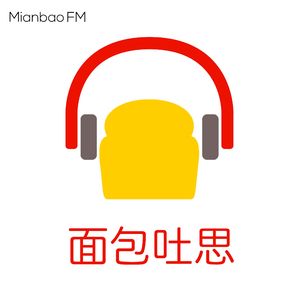Huh? Blue Whale Dialect?
Nope, that's just how Nanjingers say their own dialect IN their own dialect (kind of). Join Brad and Vicky in episode 3 of 南腔北调 as they explore the language, history and culture of the 'Southern 京' with Nanjing native 小王 and get in to much more than mixed up L's and N's.
南京,一座古典与现代交融的城市。 你对她了解有多少? 只有夫子庙、老门东,鸡鸣寺、玄武湖,明城墙、中山陵吗? 你知道南京话曾是中国历史上长期通用的官方标准语吗? 蓝鲸话摆的一米,阿是啊? 蓝鲸人哪个怕哪个? 小杆子你怎么这么甩?
……
本期节目让老南京人小王带领大家学习一下南京话前前后后的故事。 点击收听节目,感受南京话的“清雅流畅”和抑扬顿挫……
目录 Contents: 1) 链接 Links 2) 开场白文字 Opening Transcript 3) 时间轴 Time Markers 4) 南京话笔记 Notes on Nanjing Dialect 5) Four 字 Stuff 6) 额外单词 Extra Vocab
1) 链接 LINKS
想关注或与我们联系么?Wanna stay up to date or get in touch?
- Like us on Facebook
- Follow us on Instagram: breadtoastchinese
- 微信公众号搜索 Search for our public WeChat account :BreadToast Chinese 面包吐思
- 给我们发个邮件 Send us an email: breadtoastpodcast@outlook.com
2) 开场白文字 OPENING TRANSCRIPT
Hey! 欢迎收听面包吐思南腔北调。我是面包. Local language serves as the starting point and core of every episode of 南腔北调,and we go from there. After spending two episodes on the Northern 京,we’re heading south to talk with 南京土著王彬彬。The dude knows his 蓝鲸 history and culture, he speaks 蓝鲸话,and he is 搞笑的一米。If you’re listening to my voice right now, you’re either lost (in which case we’re so glad we found you!), working on your Chinese, or you’re a native speaker. Doesn’t matter! Stick around. You just might have some fun and you’ll certainly learn a lot about an incredible city and a fascinating dialect.
To help yourself get a grasp of the basics of 南京话,we suggest you follow along with the language learning materials in the show notes at breadtoastchinese.simplecast.com or in the article for this week’s show on our public WeChat account, or 微信公众号,BreadToast Chinese 面包吐思.
3) 时间轴 TIME MARKERS
1:27 – 介绍人+南京市背景 Intros and Nanjing City background
8:50 – 南京话=普通话???Nanjing Dialect=Standard Chinese???
12:20 – 南京话基础 Nanjing Dialect Basics
17:48 – 南京白局;悲哀之城;南京历史与文化 Nanjing Theater; City of sorrow; Nanjing history and culture
24:38 – 南京特色美食 Nanjing specialty cuisine
28:11 – 用三个词来描述对南京的印象 Use three words to describe Nanjing
33:42 – 南京话说话的样子 Speaking like a Nanjinger
4) 南京话笔记 NOTES ON NANJING DIALECT
发音 Pronunciation
- What about 声调 tones? Pretty simple, really: 4 → 1;1 → 4
- Mix up your n’s and l’s liberally. ‘N’ / ‘L’不分
- 尾音是扬的,也有点拖音
说南京话要有态度和姿势 Required Attitude and Body Language
- Gotta be 甩 shuai! 讲话有点二五郎当。So, what’s 二五郎当?
- Don’t forget, your head should be tilted back and 昂昂的 – 仰着头跟别人说话
- Channel your inner 不鸟你 /不在乎你 attitude
必备的单词/说法 Assorted Words & Phrases
- 回宁要到南京南站 – focus on messing up your l’s and n’s and 1st and 4th tones
- 啊 - 语气助词;疑问句 - Just say ‘ah’ a lot, people. You’re practically local already!
- 啊要辣油?
- 啊吃过啦?
- 啊是啊?
- 啊地铁票啊漂亮不?
- 啊漂亮?
- 啊紫 – 南京地铁4号线外号啊去过啊?
- 白 -不发 bai。就发 buh-,快速- When you say 南京白局, you basically want to remove the vowels from 白 and 局。
- 多大事 – 没有多大关系 – It’s no biggie. The 事 just becomes a quick little hiss.
- Here’s a quick transcript of everything 彬彬 says at 35:12:
- 你你你你,什么意思啊你,你干么事啊,你还想吵架啊你,我跟你讲你当心点个哦,你想怎样啊,你想干什么事啊,哪个怕哪个啊
- 的一米 – 表示程度 - This is definitely Brad’s favorite of all the 南京话 stuff. Use this anywhere to emphasize. Instead of saying 你非常帅,you say: 你帅的一米。
- 摆(很牛) & 来私(厉害)- More stuff that just means awesome/amazing.
5) FOUR 字 STUFF
- 顺其自然[ shùn qí zì rán ] - to let nature take its course (idiom). 指顺应事物的自然发展,不人为去干涉。
- 六朝古都 [ liù cháo gǔ dū ] - Six Dynasties ancient capitals.
- 势力范围 [ shì lì fàn wéi ] - sphere of influence
- 百家争鸣 [ bǎi jiā zhēng míng ] - a hundred schools of thought contend (idiom); refers to the classical philosophic schools of the Warring States period 475-221 BC. 指战国时期学术思想领域“百家”林立、互相争辩的现象。
- 淋漓尽致 [ lín lí jìn zhì ] - lit. extreme saturation (idiom); (of aperformance) brilliant; in great detail; fig. vividly and thoroughly; withoutrestraint. 形容文章、谈话表达得十分透彻,充分。也形容暴露得彻底:此文把反动派的嘴脸刻画得~。
- 原汁原味 [ yuán zhī yuán wèi ] – original.
- 田园风格 [ tián yuán fēng gé ] – pastoral/rural/country style
- 精神内核 [ jīng shén nèi hé ] – spiritual core
- 吃喝拉撒(睡)[ chī hē lā sā (shuì) ] – to eat, drink, poo,pee, and sleep; (fig.) the ordinary daily routine (Hanping Dictionary)
- 不合时宜 [ bù hé shí yí ] - be incompatible with present needs; untimely. (idiom)时宜:当时的需要和潮流。不适合时代形势的需要。也指不合世俗习尚。
- 夸大其词 [ kuā dà qí cí ] - to exaggerate (idiom). 说话或写文章不切实际,扩大了事实。也作夸大其辞。
6) EXTRA VOCABULARY TO LOOK UP AND LISTEN FOR (IF THAT'S YOUR THING)
- 土著
- 定点土话
- 金箔
- 交界
- 机智
- 迷住
- 邂逅
- 怀抱
- 惯例
- 跑题
- 尾音
- 江淮官话
- 即便
- 来华
- 流通
- 福利
- 紫金山
- 渊源
- 交际
- 符号
- 承担
- 屠城/大屠杀
- 移民
- 交融
- 断代史
- 缩影
- 底蕴
- 深厚
- 现代化
- 看头
- 贴合
- 到位
- 盐水鸭
- 陷阱
- 颠覆
- 蟹黄汤包
- 精致
- 淮扬菜
- 菜系
- 南京大萝卜
- 憨厚
- 计较
- 基因
Pinyin, translations and definitions come from Baidu unless otherwise noted in parenthesis.
Is this stuff helpful? What else would you like to see here? Got any questions, comments or complaints? Send us an email: breadtoastpodcast@outlook.com
-------
制作人 Producers:面包 + 老罗
主播 Hosts: 面包 + Vicky
嘉宾 Special Guest: 王彬彬



 161
161 2
2

